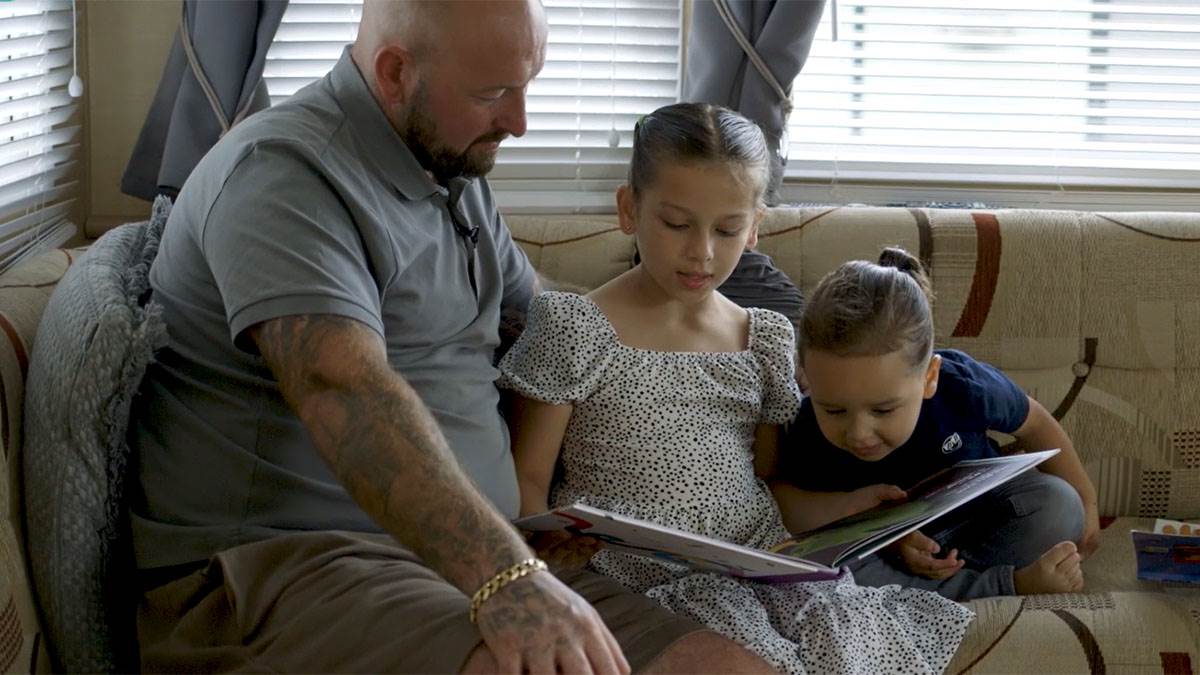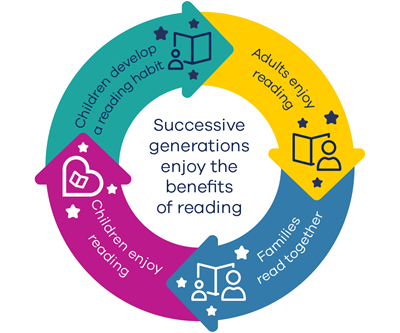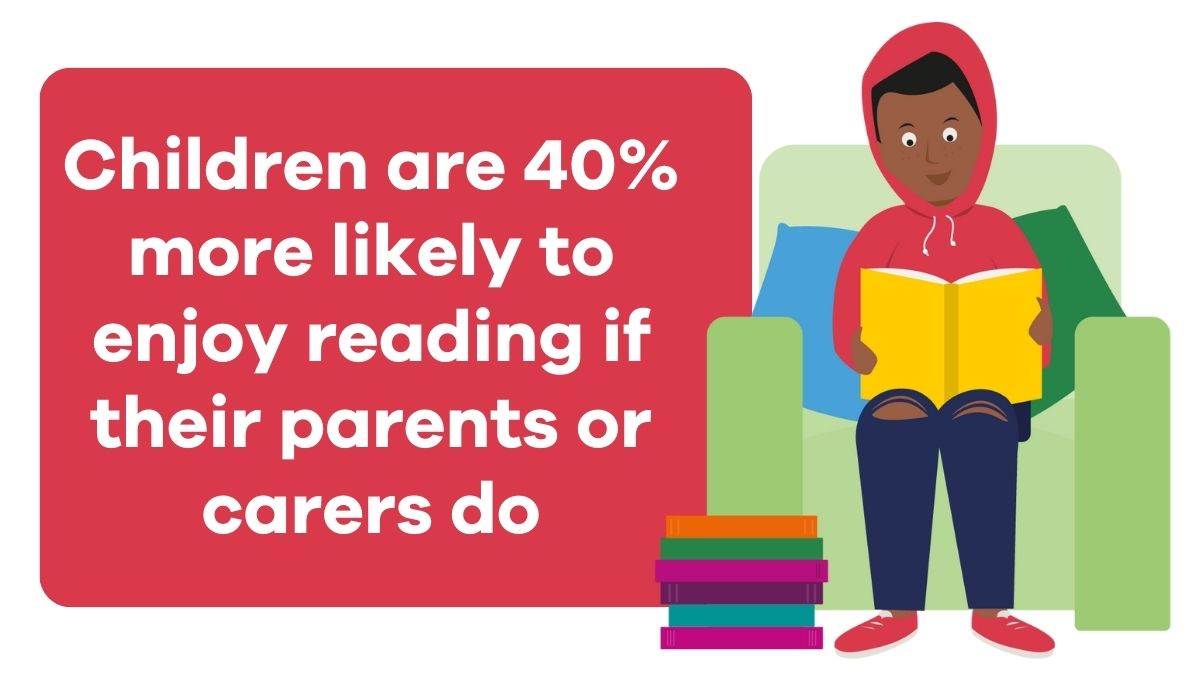Family cycles of reading: What teachers need to know
Published on: 04 March 2024
BookTrust's research shows that parents and carers' enjoyment of reading has a big impact on children's reading habits.
Here, senior assistant principal Kiran Satti from Wallbrook Primary Academy shares what teachers can take from the study.
BookTrust's Generational Reading Cycles research I think was very timely, because I think it's something that schools have always known about - I don't think it's new, what's being shared - but I think the images and the infographics that go with it are really, really powerful.
I think the one thing that I found when I started teaching, over ten years ago now, is this generational idea of a reading cycle. It's going back to that confidence level the children have when they come into school - you know when they've been read to, you know when there's a culture of reading, of enjoying books at home, because they come in really ready for it. They want to go to the books, they want to look at what's in the reading corner, they want to share what their favourite stories are.
But we never ask the parents that. I think it's bridging that gap - what was their reading experience like? Unless you have good relationships with them and they open up to you about it, how are you ever really going to know?
I have some parents in this class that are dyslexic and they've shared that with me, and there's certain things that they will look out for in their children, like, "When I was little, this used to happen to me." So when we're talking about it, it's, "OK, this is what I'm doing with your child, is this something that maybe you could start doing at home with them as well?"
Exploring the two cycles of reading

When I think about the generational reading cycles, there are two. There's the one where they've had the most beautiful experience, they've had bedtime stories, they're talking about books all the time. I mean, my dream would be that when you get pregnant, you're reading to them whilst they're in the womb, because they're still listening. But it's the idea that the culture is there, the love of books will be there, because it's nurtured from the beginning.
And then you'll have the other reading cycle where that was never the case. They found it really hard. There wasn't any support for them, they didn't really know how to make any more progress than where they were at.
And it's understanding that you're going to have those varying experiences coming into a classroom. And it's a microcosm of society because when they go back out into the world, what cycles are we trying to make up? We want everyone to have that beautiful reading cycle from the beginning.
Communicating with families

So I think opening up this conversation about parents enjoying reading is important, and giving them the space to share. Have they had a favourite book? Or is there a book that they're enjoying reading with the children at the moment? So at least that cycle is beginning, because we only have the power for the time that we have these children.
It's talking to grandparents when you can, talking to family members, making sure that communication and whatever it is that you need to get from that point in time, you get, so you can help that child.
If you're gifting books to children, they can take them home and share them with their parents, and maybe that might be the start of them breaking their own cycle of disempowerment in terms of reading, because that's not the same experience their child is having and so it's a new cycle forming then.
Being inclusive of all families
I think it's important to understand that there are two cycles coming into every classroom and we need to be wary of that and make sure that we're still inclusive in terms of how we frame certain questions. Parents might not have had a favourite book - maybe there's a favourite story that they listened to when they were younger, or maybe there's a favourite story that they saw on TV when they were younger.
It's opening up that space for them to share their favourite reading experience rather than book, because that might be a trigger for some parents - you don't know. It's being wary of it and open minded in how you develop those conversations so you get the best for that child in that point in time.
What every school needs to take from the BookTrust research

I think the main thing I took away from the BookTrust research was that there's a higher likelihood of children enjoying reading if their parents are known to enjoy reading. Again it's that cycle - making sure that cycle of enjoyment and curiosity and opening up empathy and compassion, it's all of those things that you get from reading a story and enjoying a story.
That's one of the main things that I think every school or every practitioner of reading needs to take away from this research - that there's a higher likelihood of children enjoying it if parents are on board about enjoyment of reading as well.
- Find out more about the generational cycles of reading research
- Explore BookTrust's resources and support for primary schools
- Share BookTrust's video below about the joy of reading at home with your school community





